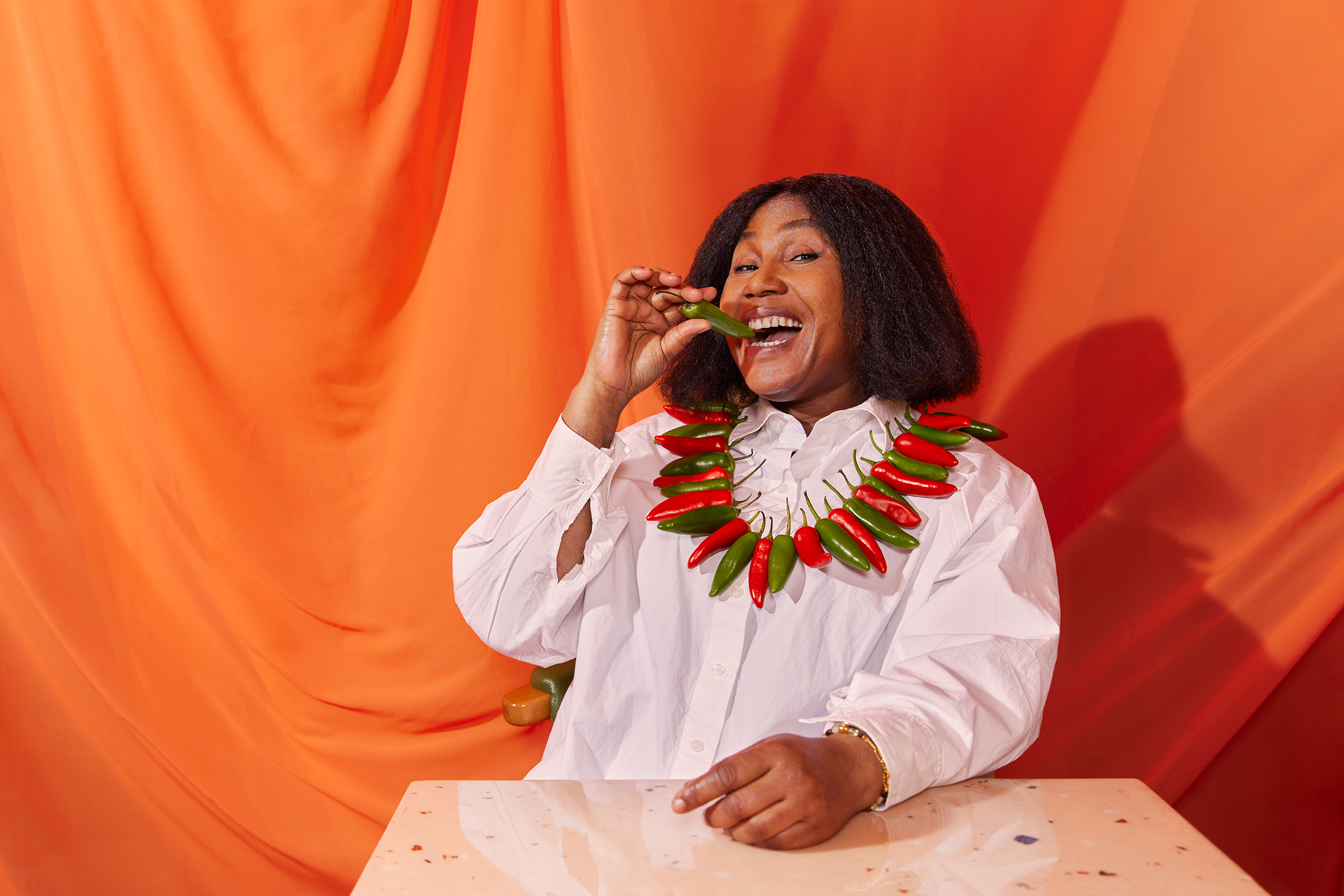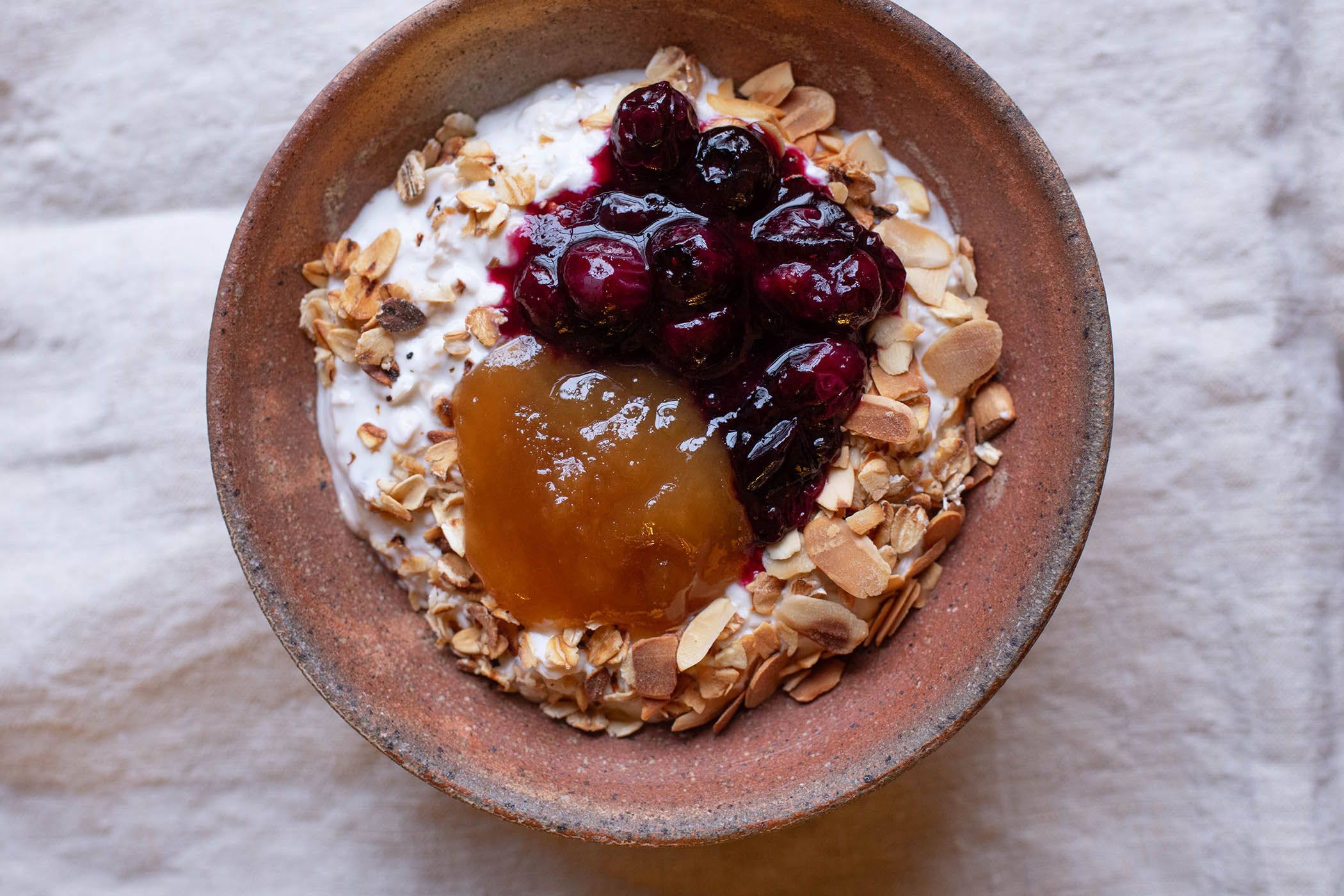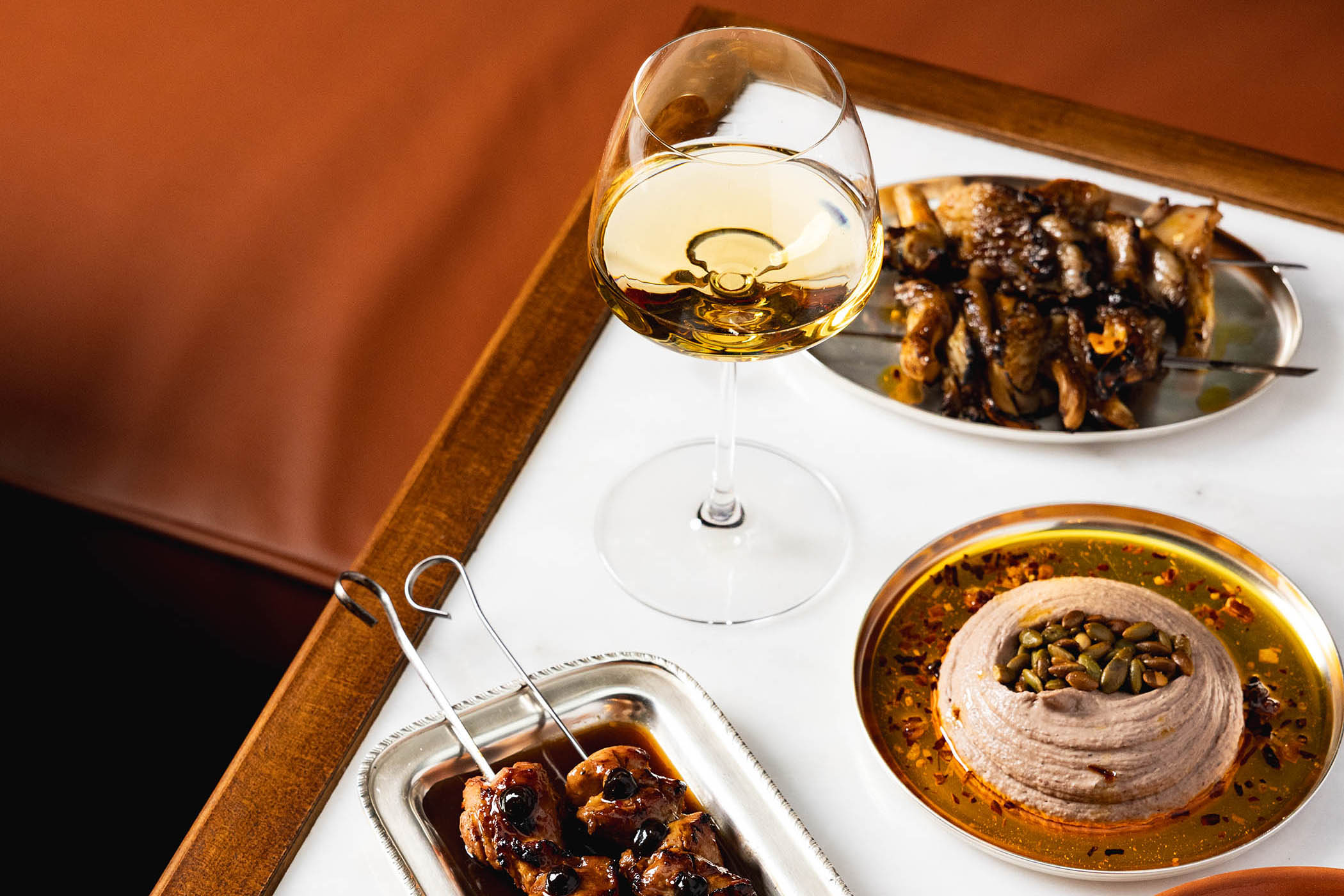Photograph by David Vintiner
I was a greedy little girl. Growing up in Nigeria, every week I found joy at the market: the placement of the tomatoes and peppers on the stall; how green the vegetables looked. My paternal grandmother was a street food seller and my parents were great cooks, which probably informed my excitement.
As the eldest child, I was expected to cook for my siblings when adults weren’t around. Sometimes it was a disaster. I remember standing on a footstool at eight years old, furiously stirring the lumps out of a fufu mixture after using nearly a whole container of flour. When my mum came home, she wanted to know how I’d managed to block the sink.
Recipes, for me, are only guidelines. In west Africa, most dishes were handed down by word of mouth. More is written now, but back then there were no reference books. Housewives had their own take on dishes, every home had their own tricks. You absorbed it by watching whoever was cooking add a dash of this and a sprinkle of that.
‘My favourite chillies are from Suriname – they’re sweet, fruity and spicy. It’s not just heat, heat, heat’
‘My favourite chillies are from Suriname – they’re sweet, fruity and spicy. It’s not just heat, heat, heat’
When I was a teenager, a friend who had visited the UK brought back an old Marguerite Patten cookbook. I spent hours looking through it, but finding the ingredients was a stumbling block. We could get eggs and flour, so I tried, and failed, to make crêpes suzette. It didn’t look like the picture, but my dad proclaimed it tasted great.
Loving chillies is my Yoruba side coming to the fore. There’s a saying: “He who doesn’t eat chilli pepper is feeble of mind.” My favourites are from Suriname because they’re sweet, fruity and spicy. It’s not just heat, heat, heat. There’s a floral aroma that draws you in and … bam! That’s my ultimate chilli, followed by a scotch bonnet.
Other than West African, Thai is my favourite food. I visited Bangkok recently and there were pockets of it that reminded me of Lagos in Nigeria: the same flowers, similar colonial architecture and flavour profile. They don’t use the same spices, but the heat, the funkiness of fermented fish and the combination of sweet and salty is all there.
When we moved to the UK my first legit fish and chips was from an amazing chip shop in Dagenham, near where my auntie lived. I loved it, although I couldn’t get my head around the vinegar or mushy peas. I worked on the London Underground for a while – when my shift finished at 3am, my colleagues and I would get a salmon and cream cheese bagel from Brick Lane, then get the night bus home.
Related articles:
The kitchen at the first Chishuru restaurant in Brixton Village felt like home. The recipes were in my head, my hands were over everything. Transitioning to a bigger space, in charge of a brigade of people with different backgrounds and palates, was daunting. I learn on the job every day. I still insist on making the sauces, though. There are so many layers to them – if you miss a step, they’re gone.
Chishuru is about west African food being taken seriously on the culinary stage. It’s telling an accurate story about our flavours and our cuisines, from Yoruba to Igbo and Hausa. Every region has its own iteration of the dishes, and I’m always mindful of how we introduce that to people.
Newsletters
Choose the newsletters you want to receive
View more
For information about how The Observer protects your data, read our Privacy Policy
Receiving a Michelin star felt like an out-of-body experience. We thought the ceremony would be a good chance to drink champagne, eat loads of hors d’oeuvres and hobnob with other chefs. When they called my name I went “Fuckityfuck!” I don’t remember walking to the stage,. I was stunned. We didn’t open the restaurant with that intention, so it was unreal.
My favourite things
Food
Thai. Street food from T&K Seafood and the omelette at Samlor in Bangkok. And at Sàat I had an insane dessert: fresh pineapple jam and thick French butter sandwiched between two biscuits.
Drink
A paloma at my favourite bar, the Connaught.
Dish to make
Tuna pasta for my daughter, Danielle, with a side of sweetcorn.
Adejoké Bakare is chef-patron at Chishuru, 3 Great Titchfield Street, London W1; chishuru.com



